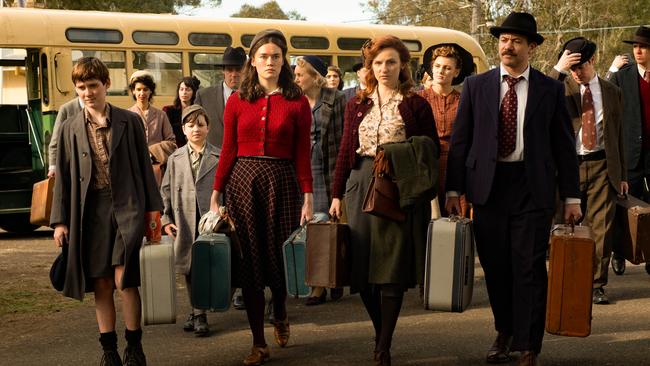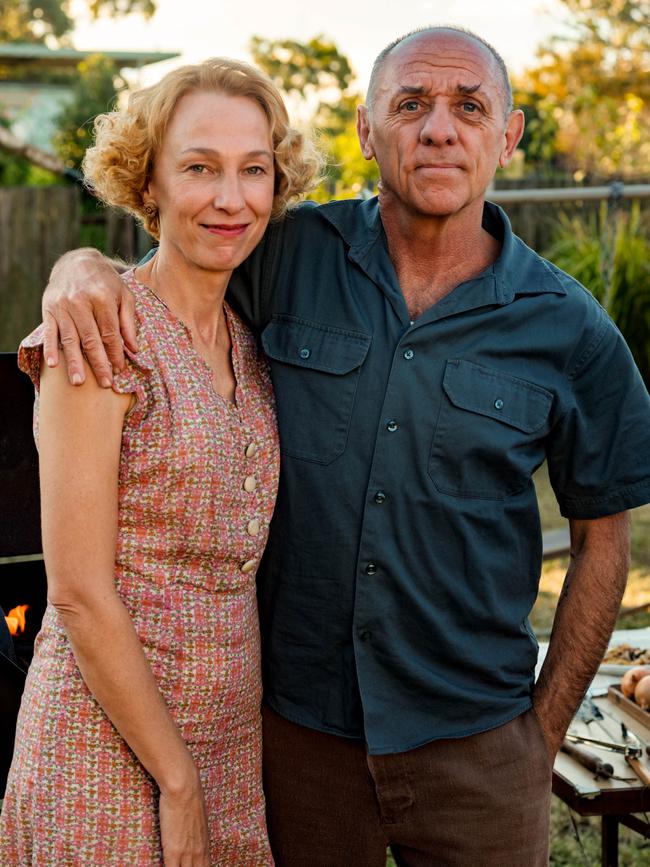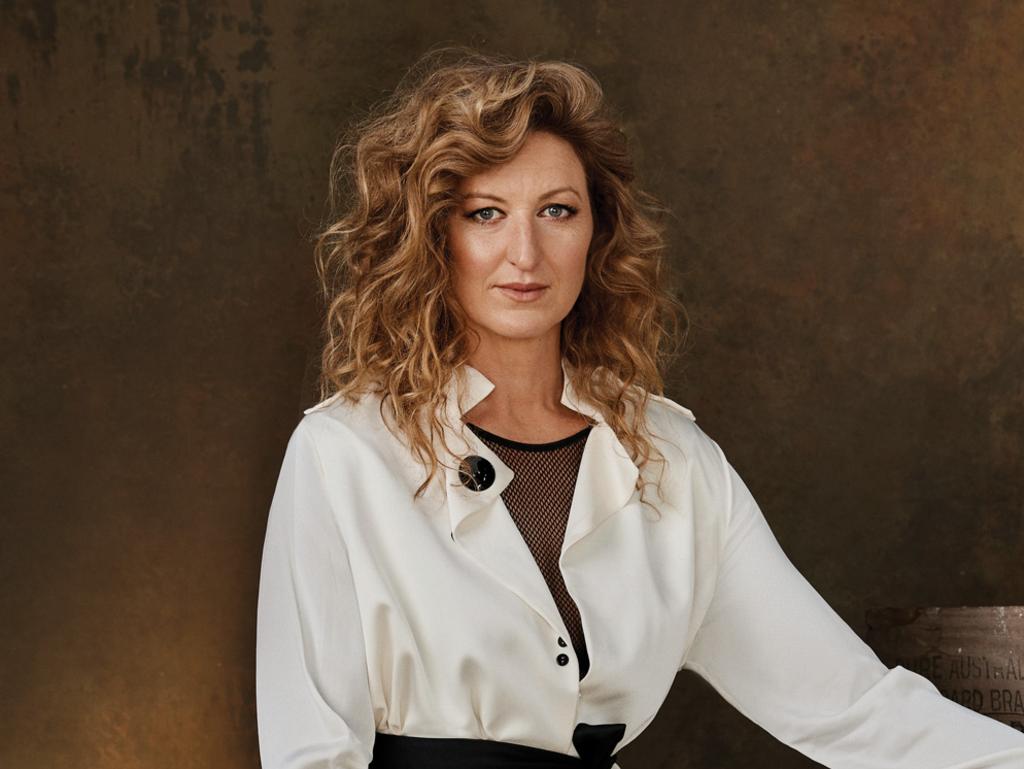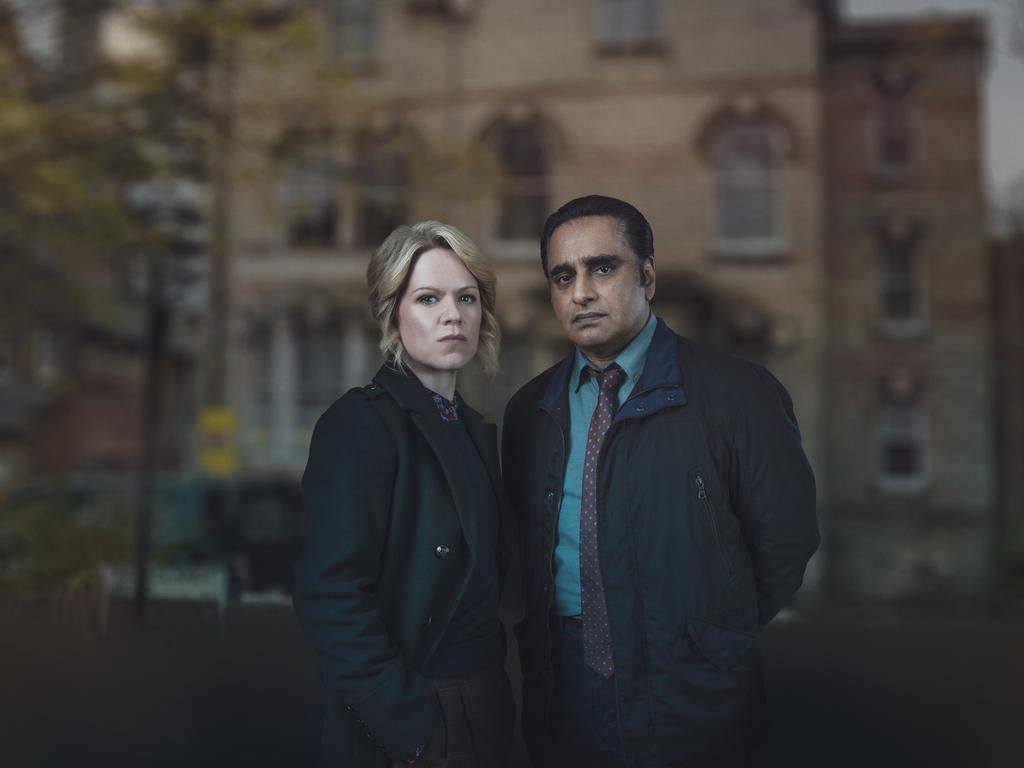Ten Pound Poms review: Sun-drenched escape or isolated outpost? Australia’s largely ignored history
Australia was a magnet exerting a powerful, innately resonating force for the suffering British seeking a better life in the 1950s. Little did they know the people who were supposed to welcome them didn’t really want them.

It was the fifties and things were grim in Britain after the war.
“Enthusiasm there was not, in this climate of fatigue,” wrote playwright John Osborne, who changed the face of post-war British theatre with his wounded and exasperated dramatic heroes.
It’s easy to see why Technicolor filmed advertisements promising “the sunny side” were so appealing to long-suffering Brits. “Ten pounds takes you to Australia” the advertisements said. “Children Free.” Others emphasised a new life for those sun-deprived kids. “Build Your Children’s Future”, they said; others cajoled “His Future Is In Your Hands,” with large photos of bonny boys. “Take Him To Australia”.
Australia was looking to populate its country, having started the Assisted Passage Migration Scheme, in 1945, known as the “populate or perish” policy: industries boomed but there were not enough workers. Of course, the racist law, known as The White Australia Policy, meant blacks or Asians need not apply.
And as the new BBC drama Ten Pound Poms dramatises so compellingly, many white Brits were only too delighted to escape postwar austerity, the unemployment, rationing and the housing shortage. Australia was a magnet exerting a powerful, innately resonating force for the suffering British, offering, so the ads said, not only that warmer climate and an outdoor lifestyle playing volleyball in the sun but, in many cases, a chance to fulfil a sense of adventure.
Little did they know this country was still an isolated British outpost (writer Alan Howe called it “an era of test patterns and epilogues”) and the people who were supposed to welcome them didn’t really want them, afraid they would take up their jobs.
It’s a period many of us know little about but there’s a grand theme here in the six-part series – the more we try to escape the more we find our troubles travel with us.
Ten Pound Poms was created by BAFTA-winning Danny Brocklehurst (Brassic, Ordinary Lies) and produced by Eleven, the team behind the award-winning Sex Education. It’s a co-production between Stan and the BBC, shot in and around Sydney, primarily Scheyville National Park, a protected wetland area located in the northwestern suburbs of the city, but filming also took place in the Blue Mountains and the historic village of Carcoar.
Directors are the versatile Scottish Jamie Magnus Stone, who has directed several highly regarded Dr Who episodes, and the experienced Australian filmmaker Ana Kokkinos, whose TV work includes The Hunting, at one point the highest-rated TV drama commissioned by SBS.
The ensemble cast is led by three well-known British actors in Michelle Keegan (Brassic, Ordinary Lies), Faye Marsay (Game of Thrones, McMafia) and Warren Brown (Luther, The Responder). They’re backed up by local performers in Stephen Curry (The Castle, The King) and David Field (Mystery Road, Last Cab to Darwin).
Brocklehurst’s story centres on the Roberts family who we meet in 1956, battling to survive in Northern England and still struggling to reconcile themselves to the appalling consequences of war. There’s Marsay’s Annie, a long-suffering housewife who has tired of playing second fiddle to the needs of her family, and Brown’s Terry, a former soldier whose time in a prisoner of war camp still affects him deeply.
Terry is a builder and we meet him working in the snow demolishing a building, where the construction noise brings flashbacks to his time in combat. Suffering PTSD, he’s also a heavy drinker and his pay-packet often disappears at the local pub. Much of Annie’s life consists in ensuring Terry stays sober, and she’s sick of it.
When she accidentally comes across an advertisement for the Assisted Passage Migration Scheme, repatriation to Australia seems to offer a new life for the family for just 10 quid; a place where families can live together in happiness and contentment in a sense of security.
They’re quickly lured with their children, Peter (Finn Treacy) and Pattie (Hattie Hook), to Australia by the promise of “the sunny side” – idyllic TV advertisements open the series over the titles, the scenes of rural and beach settings spacious and full of vibrancy, evoking emotions of hope and happiness.
“Goodbye rain, hello to 300 days of sunshine a year,” says Terry in the cab on the way to their ship. “Having tea in the garden,” adds his wife. “Imagine having a garden.”
But on arrival they find themselves living in what are little more than internment camps, largely consisting of disused Nissen huts, semi-cylindrical structures made from corrugated iron, uninsulated and producing the most extreme of temperatures. There are no private kitchen, laundry or bathroom facilities attached, the lavatories are communal.
They soon find, too, met by stone-faced Australian bureaucracy, that they are required to stay in Australia for two years, giving up their passports on arrival, able only to return to Britain if they pay back their outward fare in full, in addition to paying for their journey home.
Greeted by Curry’s JJ Walker, a kind of camp overseer, they are also introduced to the notion of the “whinging Pom”, the comically sneering Walker confronting them at the start. “You come over here from boring old Blighty with its rain and its rationing and we embrace you, we invite you to our sunlit paradise to work hard, to prosper and even get to own your own home but all some of you do is bitch and complain about how much you miss good old England.”
This won’t be their first acquaintance with the colonial inferiority complex, that defensive resentment that was still present in the 1950s, everything English attacked with disdain and depreciation.
Apart from the Walkers, there’s also Keegan’s glamorous nurse Kate, who leaves her fiancee on board the ship after he changes his mind about this supposed new life. She’s deliciously full of secrets and seems to be looking for a son who has gone missing. A flashback takes us to London, where Kate is watching as he’s taken away on a train. (This subplot possibly points to a post war migration policy that saw thousands of children sent to Australia to ease the burden on UK orphanages.)

Stephen Curry, always a delight, has fun with JJ Walker, adding comic value to the show, a character obvious, rough, and hearty, something callous in his humour’s hardness. He seems to be having an affair with someone’s wife, a woman called Sheila (Emma Hamilton), who seems desperate to return to the old country.
And David Field, another actor who never disappoints, is terrific as the menacing and grizzled Dean, a fellow labourer of Terry’s when he takes work as a ditch digger. He leads Terry into a shocking incident, a disturbing cliffhanger, at the end of the first episode.
As Brocklehurst says of Ten Pound Poms, it’s unashamedly a character drama, but a thriller subplot establishes itself at the end of the first episode, and from the start there’s a high level of emotional intensity. There are many characters to follow, a lot of relationship dynamics to get your head around and Brocklehurst is not above a few broad strokes to propel his many storylines.
But it’s an entertaining look at some largely ignored history and Stone’s direction is assured and polished. Much of the series is shot on Steadicam, the now so fashionable handheld camera stabiliser. Stone covers the scenes in close-up and takes us into the action in a kind of immersive way.
And he and his director of photography, the emerging local cinematographer Meg White, get the period just right. The Australian scenes pick up on the look of the TV commercials, often bathing the action in that slightly fashionable faintly nicotine-like aesthetic, a burnished quality in the light, the stuff of memory. And much of the action is covered in an attractive montage style to the accompaniment of rollicking period tunes, not only Flanders and Swann, and skiffle groups but Lloyd Price and The Jaguars with Be My Sweetie from 1955.
As Brocklehurst says his series is “essentially about ordinary people in extraordinary circumstances, their lives and their families and trying to make things work.” He calls it “a period drama with dirt under its fingernails” and for all its busyness, and at times sketchiness, the way he plays with the balance between personal aspirations and family obligations, and national identity and cultural attachment is intriguing and always entertaining.
Ten Pound Poms streaming on Stan






To join the conversation, please log in. Don't have an account? Register
Join the conversation, you are commenting as Logout